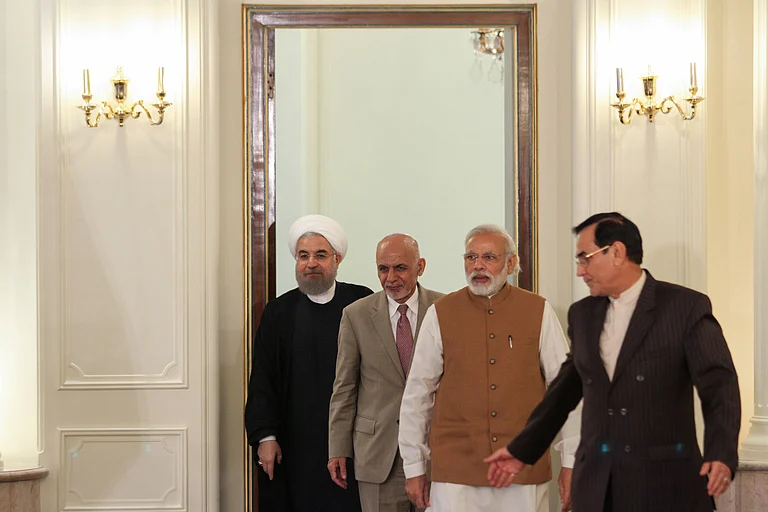The Pakistan government has finally approved the commencement of the much-delayed construction work on its segment of the Iran-Pakistan (IP) gas pipeline which will help address the increasing energy needs of the cash-strapped country.
The approval, which came after a delay of several years, for the first phase of the 80-km segment inside Pakistan was given by the Cabinet Committee on Energy (CCoE) of the interim government just days before the new government takes office after the February 8 elections.
"The Pakistan government has approved the start of construction work on its segment of the Iran-Pakistan (IP) gas pipeline," said an official statement.
The committee, acting on a recommendation from the Petroleum Division, has endorsed the commencement of the project, starting from the Pakistan-Iran border up to Gwadar, a port city in Balochistan province, in the initial phase.
“All the concerned divisions gave a positive nod to move ahead with the project to ensure gas supplies to the people of Pakistan, thereby addressing the increasing energy needs of the country,” the statement stated.
Pakistan’s Interstate Gas Systems (Pvt) Ltd is set to execute the project, which will be funded through the Gas Infrastructure Development Cess (GIDC).
The statement emphasised the significance of the project for enhancing the energy security of Pakistan and instilling confidence in the local industry through improved gas supplies.
The project is anticipated to stimulate economic activity in the Balochistan province, thereby contributing to the overall economic progress of Pakistan.
Pakistan has been forced to start the work after many years of delay due to fear of a potential USD 18 billion penalty for failing to complete the project on time, The Express Tribune newspaper reported earlier in the week.
Iran has granted a 180-day extension until September 2024, aiming to avoid litigation in international courts.
Experts suggest that diplomatic relations between Pakistan and Iran could be strained if legal action is pursued by Iran to safeguard its rights concerning the pipeline project.
The project was initially conceived as an India-Pakistan-Iran gas pipeline, but later, India left it and became a bilateral project between Pakistan and Iran.
The sanctions imposed by the US on Iran over its nuclear programme had so far deterred Pakistan from constructing the pipeline.
Despite the sanctions imposed by the United States, Pakistan has decided to proceed with the construction of the IP gas pipeline within its borders to fulfil its commitment to Tehran.
In March 2013, then-President Asif Ali Zardari and his Iranian counterpart Mahmoud Ahmadinejad held a groundbreaking ceremony near Iran's port city of Chabahar, with an estimated cost of USD 7.5 billion at that time.
Both countries also signed a Gas Sales Purchase Agreement (GSPA), binding Pakistan to commence construction on the IP project.
But Pakistan failed to undertake the construction on its side, primarily due to the US pressure and sanctions on Iran, which claims that it already completed construction on its side.
The country’s Public Accounts Committee was informed in May last year that Pakistan would have to pay a staggering amount of USD 18 billion in penalties if it did not go ahead with the Iran-Pakistan Gas Pipeline project.


























